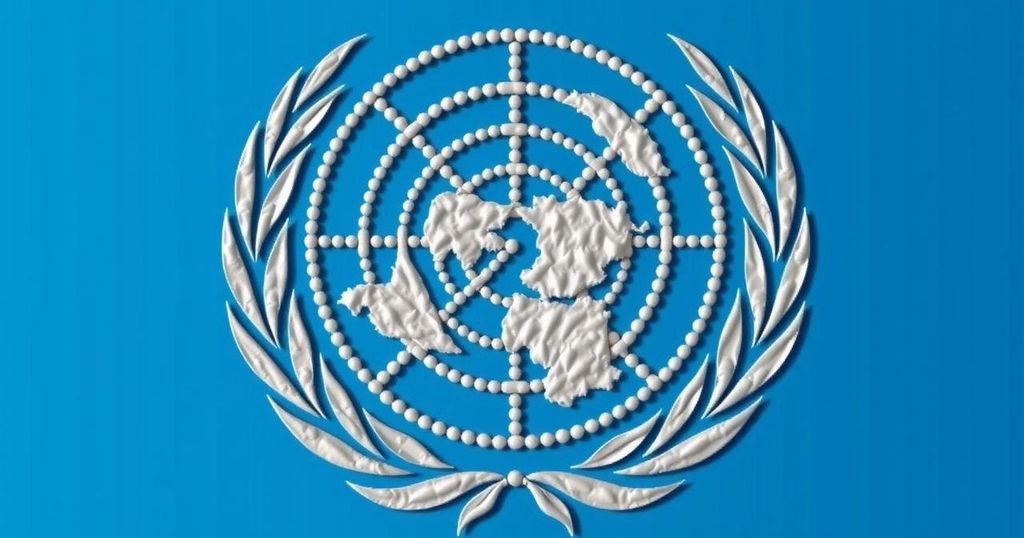Developing nations have condemned the newly signed $300 billion annual climate finance deal at the UN summit in Baku, Azerbaijan, criticizing it as inadequate for addressing their needs in combating climate change. Despite this pledge, officials from various nations expressed disappointment, asserting that it falls far short of the anticipated financial support necessary to combat climate impacts and foster resilience.
Developing nations have criticized the recently agreed $300 billion annual climate finance deal from the UN climate summit in Baku, Azerbaijan, deeming it a meager amount in light of the urgent challenges posed by climate change. After extensive negotiations, the deal mandates wealthier nations contribute at least $300 billion annually by 2035 to assist poorer countries in reducing greenhouse gas emissions and enhancing their resilience to climate-induced disasters. However, many representatives from developing countries have expressed immense dissatisfaction with this outcome, feeling it falls markedly short of their financial needs.
India’s delegate, Chandni Raina, vehemently denounced the sum as “paltry”, suggesting that it fails to address the significant hurdles faced by vulnerable nations. Similarly, officials like Jiwoh Abdulai, Minister of Climate in Sierra Leone, criticized the deal as indicative of a “lack of goodwill” from developed nations. The sentiment was echoed by Tina Stege, climate envoy for the Marshall Islands, who recognized the inadequacy of the funding while still viewing it as a starting point for future discussions. Various groups, including the Alliance of Small Island States and the Least Developed Countries, also conveyed their disappointment.
The negotiations leading to the pact were fraught with tension and divisions, as countries struggled to agree on a financial commitment that fairly reflects the responsibilities of those that contributed most to the climate crisis. Although the final agreement marks an increase from the previously pledged $100 billion, developing nations had anticipated a minimum of $500 billion in support. UN officials acknowledged the imperfections of the deal, with UN Secretary-General António Guterres urging that this should serve as a foundational base for future enhancements.
As discussions neared their conclusion, the political dynamics intensified with nations grappling over funding contributions. Despite fears of an impasse, representatives ultimately chose to endorse the agreement. This commitment to $300 billion annually is viewed by many as inadequate, particularly in light of UN estimates suggesting a requirement of approximately $390 billion just to satisfy the needs of developing countries, excluding China. Many believe that richer nations must increase their contributions to truly meet the escalating demands of climate challenges globally.
The article addresses the outcome of the recent UN climate summit in Baku, Azerbaijan, where a contentious climate financing deal was established. Developed nations are pledged to contribute at least $300 billion annually by 2035 to assist developing countries in tackling climate change. The negotiations were intense and highlighted significant divisions between developed and developing nations regarding financial responsibilities for climate mitigation and adaptation efforts. This context is essential to understand the reactions from various stakeholders, particularly those from the global South, who feel the deal does not reflect the scale of their challenges. Furthermore, the backdrop of previous financial commitments and the urgent climate realities facing developing nations adds to the scrutiny of this agreement.
In summary, the $300 billion climate financing deal approved at the UN summit has sparked considerable dissatisfaction among developing nations who regard the figure as insufficient to address the severe impacts of climate change. Key representatives from developing countries have articulated a sense of betrayal and disappointment in the commitment, with many calling for a more robust financial support system. As negotiations continue in addressing climate change, the calls for increased contributions from developed nations are expected to persist, highlighting the ongoing challenges in achieving a fair and effective global climate finance structure.
Original Source: www.france24.com






